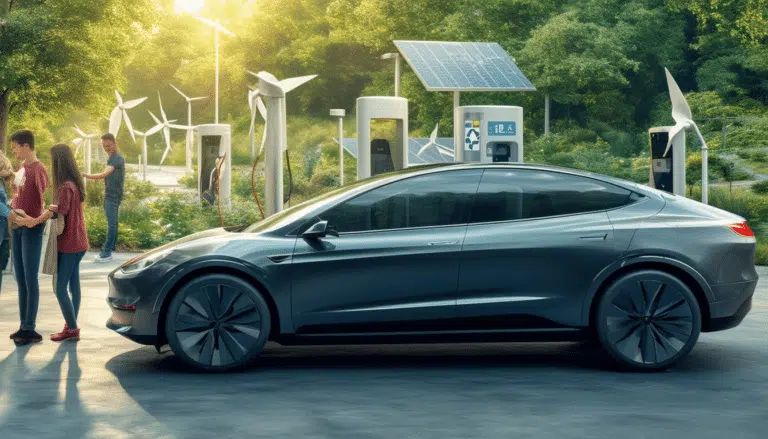The best way to educate about fuel saving
The education on fuel conservation is fundamental to promote responsible and efficient use of this vital resource. By understanding the environmental impact of fossil fuel consumption, sustainable practices can be adopted to favor a more ecological future. Educational initiatives and programs are essential to build a collective awareness that fosters eco-efficiency and reduces pollution through energy savings.
Education about fuel conservation is essential in the current fight for sustainability and the reduction of environmental impact. This article addresses various strategies and approaches that can be adopted to promote learning and awareness regarding the importance of efficient use of energy resources. Through understanding the impact of fossil fuel consumption and promoting sustainable alternatives, significant contributions can be made towards a greener future.
Environmental Education and Awareness
Implementing environmental education programs is one of the most effective ways to raise awareness about fuel conservation. These programs should be designed to inform individuals about the negative impact of excessive fossil fuel use on the environment. Additionally, it is important to educate about the cleaner alternatives available and how they can contribute to a reduction in the carbon footprint.
Community Strategies for Sustainability
Community initiatives are fundamental for educating about fuel conservation. This can include workshops, talks, and activities that engage citizens in sustainable practices. An informed community can create a domino effect, where participants adopt the learning into their daily lives, motivating others to do the same.
Encouraging Public Transport Use
Promoting the use of public transport is an effective strategy. Campaigns can highlight benefits, such as reducing air pollution and saving money. By educating the population about these advantages, the aim is to decrease dependency on personal vehicles and foster a cultural shift towards more sustainable forms of transport.
Clean Technologies and Their Adoption
The adoption of clean technologies also plays a crucial role in education about fuel conservation. It is essential to inform users about the efficiencies offered by electric vehicles and other innovations that contribute to lower fossil fuel consumption. Talks and seminars on these topics can help demystify the perception that these technologies are inaccessible or complicated.
Investment in Energy Efficiency
Education should also focus on investment in energy efficiency. Teaching how fuel consumption efficiency benefits not only the environment but also personal economies is very relevant. Promotion of investment in efficient technologies is a fundamental part to achieve a positive impact.
Eco-Driving Training
Incorporating eco-driving into educational programs is an effective strategy. This training includes techniques that help optimize fuel consumption while driving, which can result in considerable savings in fuel expenses. Informed drivers tend to adopt more responsible and efficient driving habits.
Recycling and Its Connection to Fuel Conservation
Fostering a culture of recycling also indirectly impacts fuel conservation. By reducing the need for new materials and the energy required to produce them, the demand for fossil fuels is decreased. Education on this aspect can highlight the importance of recycling towards a more sustainable future.
The Role of Government in Fuel Education
Government policies play a crucial role in education about fuel conservation. Initiatives that promote the use of renewable energy and sustainability must be effectively communicated to the public. To understand how policies affect consumption, more information can be found about this relevant topic here.
Conclusion
In summary, the best way to educate about fuel conservation involves a combination of strategies that encompass environmental education to the implementation of clean technologies, while simultaneously fostering investment in energy efficiency and a change in consumer behavior habits. With these actions, significant contributions can be made towards a more sustainable future.
The education on fuel conservation is crucial for fostering environmental awareness in society. Through educational programs, not only can the economic benefits of saving fuel be conveyed, but also the positive impact it has on the environment. This kind of knowledge must be accessible to everyone, from students to adults, so that each person can contribute to a more sustainable future.
One of the most effective strategies is to implement workshops and seminars in schools and communities that demonstrate simple practices to optimize fuel use. Environmental education plays a crucial role here, as it allows people to understand the effect of fossil fuel consumption on the planet, as well as the importance of cleaner alternatives. In this way, a significant change in consumption culture is promoted.
Another useful approach is the integration of modern technologies into the educational process, such as applications and devices that help measure and analyze energy consumption. This not only makes learning more interactive but also generates a practical experience that can facilitate the understanding of concepts. Moreover, the use of social media and digital platforms can be a powerful resource to disseminate information and tips on fuel conservation to a broader audience.
Finally, it is essential to foster collective responsibility in fuel conservation. Through community initiatives, a sense of belonging and collaboration is created. By working together, communities can discover and apply effective strategies that not only benefit their members but also contribute to the well-being of the environment.





